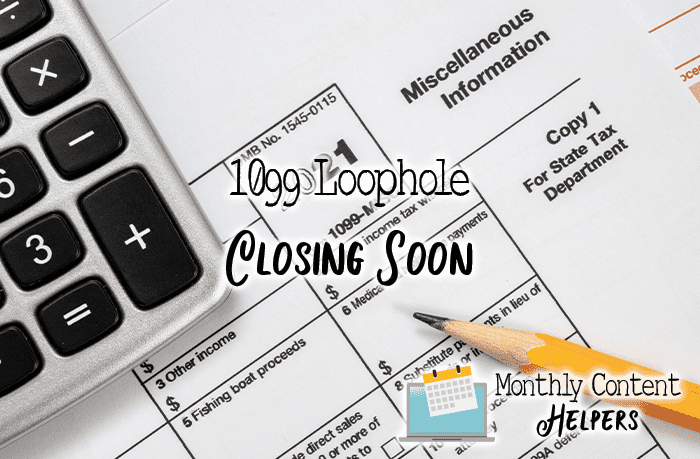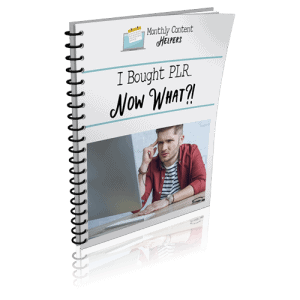
It’s about to become more difficult to sell goods and services online, at least when it comes to filing your taxes at the end of the year.
Congress has closed the popular “PayPal Loophole” that allowed many online resellers, YouTube creators, and service providers to avoid getting a 1099-K or 1099-MISC from their payment providers (and thus, in many cases, to avoid paying taxes).
To be clear, this income has always been reportable.
The law states that anyone who makes $400 or more in self-employment income (and selling on eBay, Mercari, etc. counts) is supposed to claim that income on their taxes.
In practice, however, few people did unless they earned enough for their payment provider to send a 1099 to both them and the IRS. This excluded all but the biggest sellers and service providers. Congress has now changed this.
What were the old rules?
The old rules were complex. A payment provider was required to send a 1099 to anyone who earned more than $20,000 per year AND had more than 200 transactions on the platform. This dual rule meant that most online resellers and service providers never met the threshold for triggering a 1099.
Example 1: A writer earned $25,000 online in 2020. She was paid through PayPal and only had 12 transactions. Did she get a 1099 for 2020? No. She made enough money, but she didn’t have more than 200 transactions.
Example 2: A Mercari seller sold 293 items on Mercari in 2020 but only earned $19,733. Did he get a 1099? No, because he didn’t make over $20,000.
Example 3: An Esty seller sold $24,000 worth of art in 2020 and had a total of 204 transactions. She is the only one of the three who received a 1099 because she is the only one who exceeded both limits.
Confused yet? The new rules are much simpler.
What are the new rules?
There is only one new rule and it’s simple: Anyone who makes $600 or more through a single payment provider will get a 1099. There are no longer any requirements for hitting a certain number of transactions.
Example 4: An eBay seller receives $4000 from eBay but only $300 from PayPal. She will get a 1099 from eBay but NOT from PayPal since the latter didn’t reach the $600 minimum.
What about transaction and service fees?
The IRS has never required payment providers to deduct fees before issuing a 1099. This doesn’t change under the new rules. It’s still up to each payment provider to decide whether to issue a 1099 for the gross amount or the net amount.
What should people who use independent contractors do?
If you pay your contractors through a third-party payment provider such as PayPal or Square, do NOT issue them a separate 1099. The payment provider will do it for you. If you send them a separate 1099, their income will be double reported to the IRS and cause them trouble with their tax returns. If you don’t use a payment provider, you’ll issue them a 1099 as normal.
When do the new rules take effect?
The new law was scheduled to take effect this year, but since Congress didn’t pass the final bill until the end of March, they pushed it back until next year.
The new reporting requirements begin on January 1, 2022.
What about the states?
Some states and the District of Columbia have already implemented the new rules, or a state-level rule, effective this year. They are Arkansas, Illinois, Maryland, Massachusetts, Mississippi, Missouri, New Jersey, Vermont, and Virginia. The new laws in these states create various thresholds that range from $600 to $2500.
It is possible that resellers and service providers who live in these states will have their income reported to the state but not the IRS for 2020, or that they will have their income reported to both even if it doesn’t meet the reporting requirements for the federal government. It depends on the service provider and the amount of income involved. Sellers concerned about this should check with their accountant or their state’s Department of Revenue.
Conclusion
The 1099 loophole is closing at the end of 2021. For sellers living in some states, it has already closed. Anyone who makes over $600 in 2022 from selling goods or services online through a single payment provider, such as PayPal or Stripe, will receive a 1099 to file with their 2022 taxes. Those who use more than one platform may receive multiple 1099s. Sellers and service providers should begin updating their bookkeeping and tax systems now to prepare for the change.
 Rebecca Brown is a full-time freelance writer in Asheville, North Carolina. She writes both content and copy for B2B and B2C businesses. She writes articles, blog posts, emails, ads, social media posts, case studies, newsletters, and more. Before becoming a professional writer, she was an e-commerce entrepreneur for several years. She has degrees in history and business. When not writing, she spends time with her daughter and a spoiled-rotten golden retriever. You can visit her website here: www.rbrownwriting.com.
Rebecca Brown is a full-time freelance writer in Asheville, North Carolina. She writes both content and copy for B2B and B2C businesses. She writes articles, blog posts, emails, ads, social media posts, case studies, newsletters, and more. Before becoming a professional writer, she was an e-commerce entrepreneur for several years. She has degrees in history and business. When not writing, she spends time with her daughter and a spoiled-rotten golden retriever. You can visit her website here: www.rbrownwriting.com.

Leave a Reply